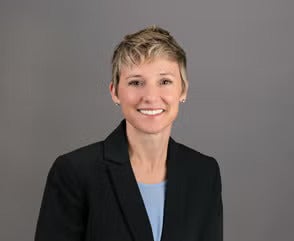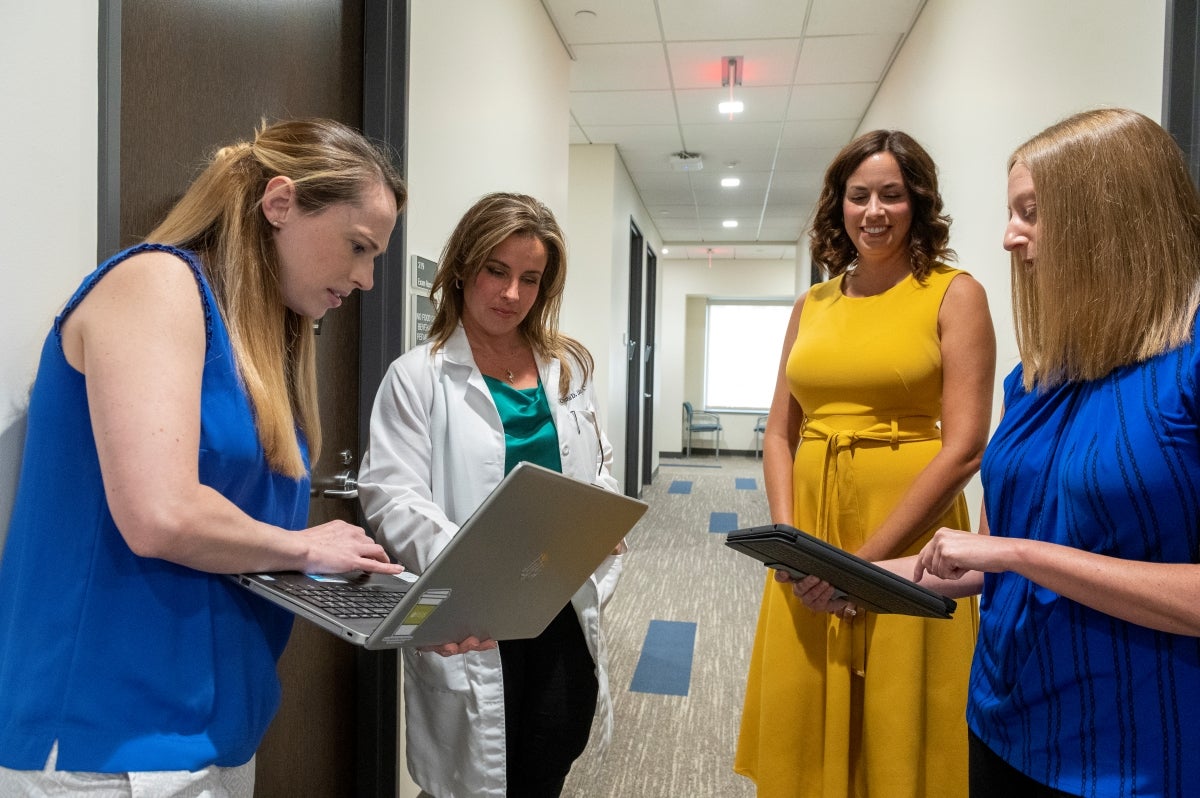UPDATE: The University of Pittsburgh’s affordable, one-year online Doctor of PA Studies (DPAS) program for practicing physician assistants/associates now awards a Doctor of Medical Science (DMSc)!
Original story:
The Administrative Elective Course prepares Doctor of PA Studies (DPAS) candidates for leadership roles in their places of practice. The course focuses on the U.S. health care system, health care reform, payment models and how the U.S. health care system compares to others in the world. Candidates also learn about different types of leadership styles and how to analyze their own strengths and opportunities to lead positive change.
Below are reflections from current DPAS candidates who have recently taken the Administrative Elective Course and share how the course has shaped their development as health care leaders.
Erica Murray, DPAS ‘23

“The modules and readings on leadership and advocacy were enlightening. I chose this elective to better equip myself for current and future administrative and leadership roles and I have enjoyed already putting some of the information we considered into practice. It was helpful to consider my own leadership style and how it works within my organization in connection with the other styles present on the leadership team. We know each other’s styles and personalities, but it was quite interesting putting names to those styles as well as the thoughts and emotional intelligence behind the individual styles. I am excited to further use the knowledge gained in the course not just professionally, but in how I handle certain situations that may come up personally as well.”
Karlyn Rupert, DPAS ‘23

“Having an elective in health care administration was very important to me since one of the main purposes of pursing a doctoral degree was to obtain formal health care administration knowledge so that I can have a foundation to pursue more administrative roles. I applaud the design of this course as it covered an array of health care administrative, leadership and interpersonal topics.”
Paulina Brown, DPAS ‘23

“Aspects of the course that I found the most interesting included learning about organizational behavior and advocacy. Our required reading was very insightful on how groups of people can be managed effectively and it gave relatable examples of how change can be approached. I can see myself referring back to this text and reading it again outside of this course. It definitely has helped me to understand some aspects of my own organization.
In terms of advocacy, I’ve always been peripherally involved in state and national physician assistant organizations, and loosely followed updates to our state regulations in Pennsylvania, but this course has allowed me the opportunity to delve deeper, dissect and truly understand the current state of the profession in the grand scheme of things. It has also sparked a fire in me to become more involved in these organizations to help be the change.”
Leigh Elrod, DPAS ‘23

“The topic I enjoyed learning the most was leadership styles and organizational dynamics. The readings and discussions gave me an opportunity to reflect on my own leadership style and the style of those I work with every day. Understanding more about myself has helped me to better understand my colleagues and the “why” behind certain decisions and behaviors. It has also helped me to be a better communicator and, more importantly, a better listener. “
Megan Gallaher, DPAS ‘23

“Personally I got the most out of the leadership portion of the semester. I learned that even as a new PA, I can be a leader in my own way. I also learned the type of leader I’d like to be, as well as the type of leader I do not want to be.”
Niya Hargreaves, DPAS ‘23

“The introspection we were asked to do with the SWOT (strengths, weaknesses, opportunities, threats) analysis forced me to make SMART (specific, measurable, achievable, relevant, time-bound) goals for myself. One I have accomplished and the second I am currently making progress on and plan to achieve before the end of the year. Introspection after receiving feedback is necessary for professional development. This principle is one of my major takeaways; I plan to incorporate it in the formal and informal training I provide for my emerging leaders.”
